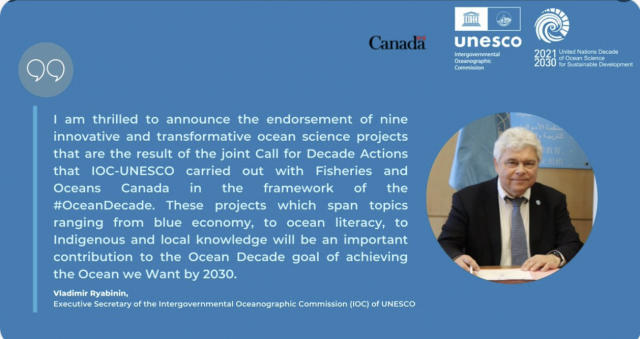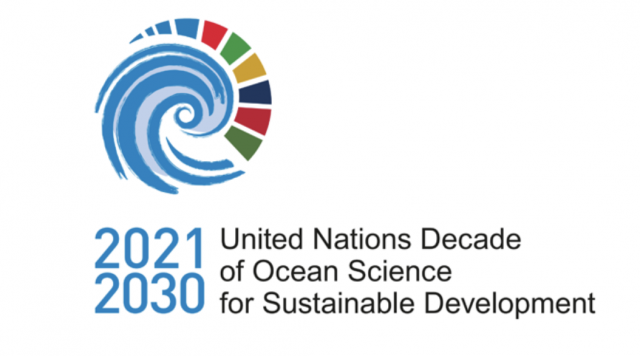OOI Designated as a UN Ocean Decade Endorsed Project
On June 8, 2022, World Oceans Day, the United Nations Educational, Scientific and Cultural Organization (UNESCO) designated the Ocean Observatories Initiative (OOI) as a UN Endorsed Action as part of the UN Decade of Ocean Science for Sustainable Development 2021-2030 (The Ocean Decade). Endorsed status presents opportunities for wider collaboration and enhanced ability to tackle grand challenges in better understanding the ocean. The announcement was timed to add to global celebrations of the UN World Oceans Day, which was organized this year around the theme “Revitalization: Collective Action for the Ocean.”
With the aim of achieving the Ocean Decade vision of “The science we need for the ocean we want,” the newly endorsed Decade Actions address priority issues worldwide, including marine pollution, management and restoration of marine ecosystems and the ocean-climate nexus—all with the goal of achieving a better understanding of the ocean system, and of delivering science-based solutions to inform decision-making from the international to the individual level.
“We are delighted that the importance of OOI’s data contributions to improving understanding of the changing ocean was recognized by the UN Decade. We very much look forward to broader opportunities to share our data with global colleagues,” said OOI Principal Investigator James B. Edson, lead of OOI’s Program Office at Woods Hole Oceanographic Institution (WHOI). WHOI operates OOI in partnership with the University of Washington and Oregon State University.
“The themes and objectives of the UN Decade of Ocean Science are tailor-made for scientists, engineers, and technicians who access OOI measurements to advance the state of our knowledge in ways that will ensure a long-term, sustainable path for society and a thriving, healthy ocean. For the coming decade and beyond, our goal is to make the ocean more accessible and to turn what we learn into meaningful, actionable information available to all,” added Edson.

Funded by the National Science Foundation, OOI was designed as a long-term project to collect ocean data for up to 25 years or more. This longevity makes it possible to measure and directly observe both short-lived episodic events and longer-term changes occurring in the ocean. Such data makes it possible to better understand ocean processes that support society and ecosystems and how the ocean is changing.
About the Ocean Decade
Proclaimed in 2017 by the United Nations General Assembly, the UN Decade of Ocean Science for Sustainable Development (2021-2030) (‘the Ocean Decade’) seeks to stimulate ocean science and knowledge generation to reverse the decline of the state of the ocean system and catalyze new opportunities for sustainable development of this massive marine ecosystem. The vision of the Ocean Decade is ‘the science we need for the ocean we want’. The Ocean Decade provides a convening framework for scientists and stakeholders from diverse sectors to develop the scientific knowledge and the partnerships needed to accelerate and harness advances in ocean science to achieve a better understanding of the ocean system, and deliver science-based solutions to achieve the 2030 Agenda. The UN General Assembly mandated UNESCO’s Intergovernmental Oceanographic Commission (IOC) to coordinate the preparations and implementation of the Decade.
About the IOC-UNESCO
The Intergovernmental Oceanographic Commission of UNESCO (IOC-UNESCO) promotes international cooperation in marine sciences to improve management of the ocean, coasts and marine resources. The IOC enables its 150 Member States to work together by coordinating programs in capacity development, ocean observations and services, ocean science and tsunami warning. The work of the IOC contributes to the mission of UNESCO to promote the advancement of science and its applications to develop knowledge and capacity, key to economic and social progress, the basis of peace and sustainable development.

